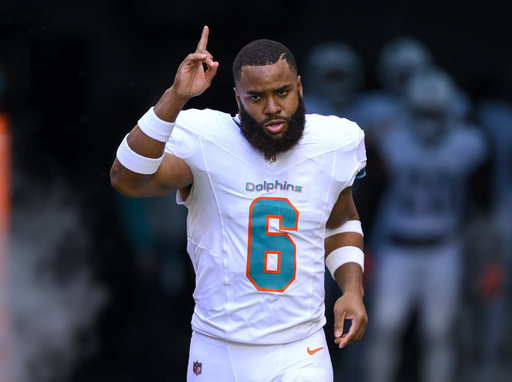
From organized team activities to the conclusion of the regular NFL season, over 65 Black players from 25 different teams were surveyed to express their perspectives on the presence of Black head coaches in the league. This initiative was conducted by reporters who cover the NFL, aiming to uncover players’ insights regarding the coaching landscape as they approach the 2024 season.
The players faced a series of three survey questions, though not everyone provided answers to all of them:
— Do you aspire to be an NFL head coach one day?
Yes: 25; No: 40; Not Sure: 1
— Are you discouraged or disappointed by the number of Black head coaches in the NFL (seven entering the 2024 season)?
Yes: 23; No: 37; Not Sure: 4
— Are you hopeful because of the Black coaches hired last offseason (three, the highest annual number since 2000)?
Yes: 54; No: 4; Not Sure: 1
### Aspirations of Players to Become Coaches
Many players conveyed a desire to transition into coaching post-retirement. As Dolphins linebacker Anthony Walker Jr. remarked, “My purpose in football extends beyond personal gain; I aspire to motivate the next generation of athletes, and coaching has always been a goal of mine.” Similarly, Steelers tight end Connor Heyward noted the predominance of players of color in the NFL, suggesting that in two decades, the coaching landscape will witness significant evolution. Chargers linebacker Khalil Mack emphasized that their familiarity with the game could provide a valuable perspective, stating, “These roles should be more accessible to us given our insights as Black athletes.” Broncos linebacker Justin Strnad added, “Progress is evident, but there is still a pressing need for more opportunities.”
### Encouragement from Recent Hires
Reflecting on the offseason hiring of Black coaches, Chiefs linebacker Nick Bolton viewed it as a step forward, highlighting the increasing representation within coaching ranks. Jets defensive end Solomon Thomas pointed out a prevailing stigma in the league, particularly influenced by the demographics of ownership. He noted, “There have always been biases within the league that affect hiring practices.”
### Barriers to Diversity in Head Coaching
Several players addressed the reasons behind the lack of Black head coaches. Dolphins defensive tackle Calais Campbell argued for the capabilities of qualified coaches, while Ravens edge player Tavius Robinson insisted that the merit of good coaches should be recognized irrespective of their racial background. Cowboys special teams player C.J. Goodwin voiced support for diversity, remarking that America’s strength lies in its varied voices and backgrounds. He acknowledged, however, that personal biases often influence hiring decisions. For Browns safety Rodney McLeod, it was disheartening to see capable individuals overlooked due to systemic barriers in the coaching field. Commanders offensive lineman Cornelius Lucas added that connections often dictate opportunities in a “good ol’ boy system,” lamenting the network disparities between races.
### The Importance of Representation
Players emphasized the significance of representation within NFL coaching roles. Solomon Thomas reiterated, “Black head coaches have been underrepresented in this league, and this is where the Rooney Rule came to be.” Panthers cornerback Mike Jackson highlighted examples like Texans coach DeMeco Ryans as symbols of change, illustrating that success as a player can transition to success as a coach.
Through these conversations, it becomes clear that while there has been some progress, many players see a critical need for continued change in the coaching ranks of the NFL, advocating for increased opportunities and representation for Black coaches.

